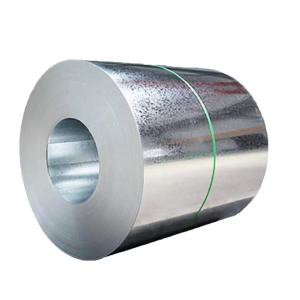Pressure Vessel Steel Plate
Standard: A202, A203, A204, A285, A299, A302, A387, A515, A516, A517, A533, A537, A612, A662, EN10028-2, EN10028-3, EN10028-5, EN10028-6, JIS G3103, JIS G3115, GB713, GB3531, DIN 17155
Pressure vessel steel plate is used for many applications where the pressure inside is significantly higher than atmospheric pressure.
Pressure Vessel Steel Plate Applications:
- A516 steel plate is carbon steel with specifications for pressure vessel plates and moderate or lower temperature service.
- A537 is heat-treated and as a consequence, displays greater yield and tensile strength than the more standard A516 grades.
- A612 is used for moderate and lower temperature pressure vessel applications.
- A285 steel plates are intended for fusion-welded pressure vessels and plates are typically supplied in the as-rolled conditions.
- TC128-grade B has been normalized and used in pressurized railroad tank cars.
| A516 Availabillity | |||
|---|---|---|---|
| Grade | Thickness | Width | Length |
| Grade 55/60/65/70 | 3/16″ – 6″ | 48″ – 120 “ | 96″ – 480″ |
| A537 Availabillity | |||
|---|---|---|---|
| Grade | Thickness | Width | Length |
| A537 | 1/2″ – 4″ | 48″ – 120 “ | 96″ – 480″ |
What is Pressure Vessel Steel Plate?
Pressure vessel steel plate covers a range of steel grades that are designed for use in pressure vessel, boilers, heat exchangers and any other vessel that contains a gas or liquid at high pressures. Familiar examples include gas cylinders for cooking and for welding, oxygen cylinders for diving and many of the large metallic tanks that you see in an oil refinery or chemical plant. There is a huge range of different chemicals and liquid that that stored and processed under pressure. These range from relatively benign substances such as milk and palm oil to crude oil and natural gas and their distillates to highly lethal acids and chemicals such as methyl isocyanate. So of these processes need the gas or liquid to be very hot, whilst others contain it at very low temperatures. As a result there is a wide variety of different pressure vessel steel grades that meet the different use cases.
In general these can be divided into three groups. There is a group of carbon steel pressure vessel grades. These are standard steels and can cope with many applications where there is low corrosion and low heat. As heat and corrosion have more effect on the steel plates chromium, molybdenum and nickel are added to provide additional resistance. Finally as the % of chromium, nickel and molybdenum increase you have highly resistant stainless steel plates that are used in critical applications and where oxide contamination needs to be avoided – such in the food and pharmaceutical industries.
The manufacture of pressure vessels is tightly regulated as a result of the risks involved and as a consequence the materials that can be used in vessels is also tightly specified. The most common specifications for pressure vessel steels are the EN10028 standards – which are European in origin – and the the ASME/ASTM standards which are from the US.
Our strength is in the very high specification pressure vessel steel plate used in the oil and gas industry and specifically in steel plate resistant to Hydrogen Induced Cracking (HIC) where we have one of the largest stocks worldwide.
Other Applications for Boiler and Pressure Vessel Plate:
- boilers
- calorifiers
- columns
- dished ends
- filters
- flanges
- heat exchangers
- pipelines
- pressure vessels
- tank cars
- storage tanks
- valves
Get In touch with



